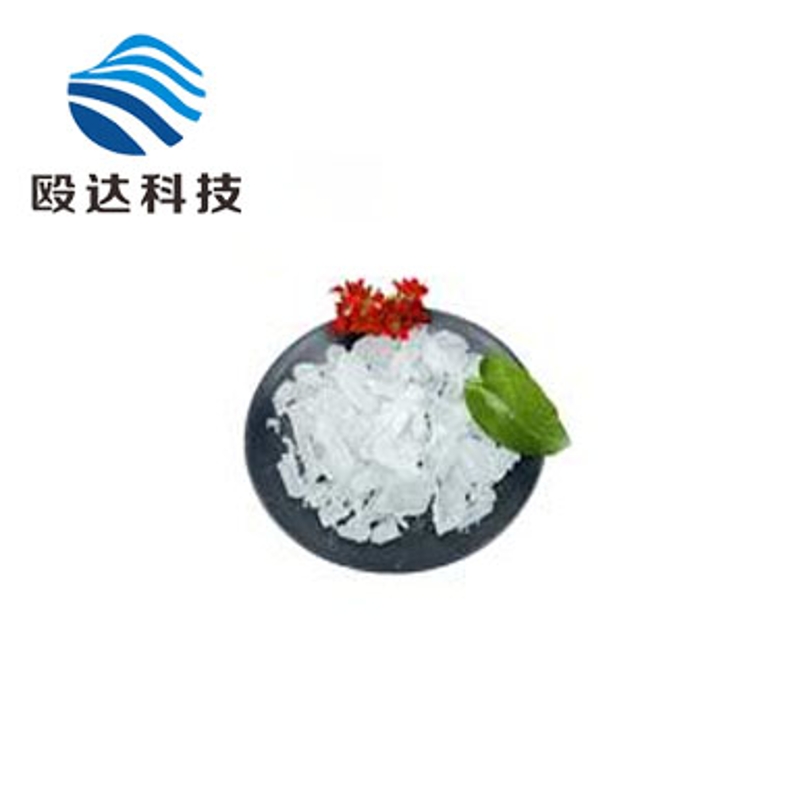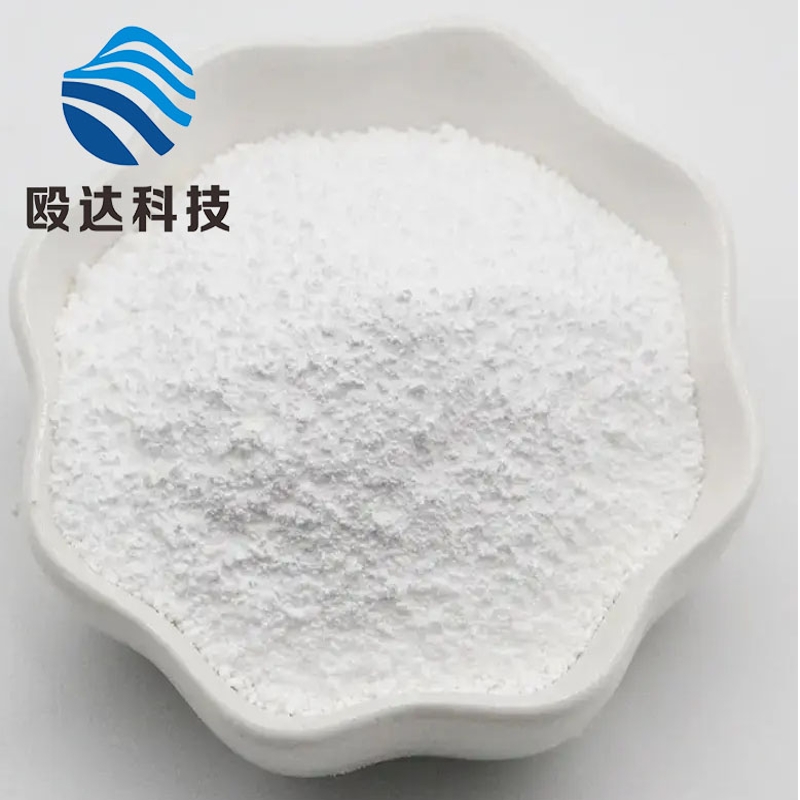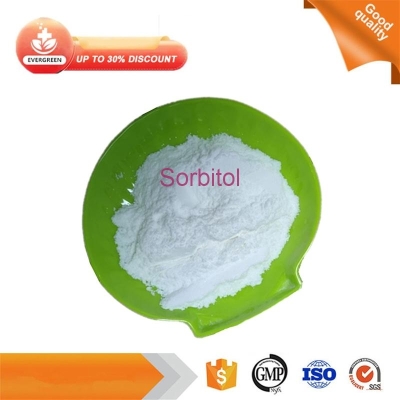-
Categories
-
Pharmaceutical Intermediates
-
Active Pharmaceutical Ingredients
-
Food Additives
- Industrial Coatings
- Agrochemicals
- Dyes and Pigments
- Surfactant
- Flavors and Fragrances
- Chemical Reagents
- Catalyst and Auxiliary
- Natural Products
- Inorganic Chemistry
-
Organic Chemistry
-
Biochemical Engineering
- Analytical Chemistry
- Cosmetic Ingredient
-
Pharmaceutical Intermediates
Promotion
ECHEMI Mall
Wholesale
Weekly Price
Exhibition
News
-
Trade Service
preface
In recent years, the treatment of advanced urothelial carcinoma drugs has made rapid progress, including immune checkpoint inhibitors, FGFR kinase inhibitors and a number of antibody-conjugated drugs have been approved for clinical use
Expert profile
Professor Chen Junxing
Deputy Director of the Department of Urology, First Affiliated Hospital of Sun Yat-sen University, Chief Physician, Doctoral Supervisor
Visiting Scholar at Massachusetts General Hospital (MGH), Harvard University, USA
He is a member of the Laser Science Group of the Urology Branch of the Chinese Medical Association
He is a member of the Laser Science Group of the Urology Branch of the Chinese Medical Doctor Association
Vice Chairman of the Urology Branch of the Chinese Society of Sexology
Standing Committee Member of Urology Branch of Guangdong Medical Association and Deputy Head of Oncology Group
Standing Committee Member of Urology Branch of Guangdong Medical Doctor Association
Vice Chairman of the Urology Committee of Guangdong Association of Integrative Traditional Chinese and Western Medicine
Vice Chairman of the Renal Surgery Branch of Guangdong Genitourinary Association
Vice Chairman of the Men's Health Management Branch of Guangdong Genitourinary Association
Member of the Professional Committee of Genitourinary Oncology of Guangdong Anti-Cancer Association
Vice Chairman of Andrology Professional Committee of Guangdong Geriatric Health Care Association
Siege – healing dilemmas, limited benefits, seeking breakthroughs
Urothelial carcinoma (UC) is one of the most common malignancies of the genitourinary system, originating in all urinary tract transitional epitheliums including the renal pelvis, ureters, bladder, and urethra, with vesicouropathic carcinoma being the most common
At present, platinum-based chemotherapy regimens are still the most important first-line treatment options in clinical practice, and the clinical prognosis of patients with disease progression after first-line treatment is still poor and treatment options are limited
A retrospective study from Yuhuangding Hospital in Yantai showed the clinical efficacy and adverse events of PD-1 inhibitors in real clinical practice Chinese mainland [12].
Nearly 1/2 of the patients enrolled in the study had not received previous drug therapy, 55 patients with an ECOG score of 0 (47%), and 36 patients receiving PD-1 single-agent combination chemotherapy (31%), the results of the study showed that the total population had an ORR of 28% (PD-1 single-agent 24%, PD-1 combined chemotherapy 36%), which was comparable to the previously reported second-line ICI single-agent efficacy, and no complete response (CR) was observed, as detailed in Table 2<>
These studies show that although the clinical efficacy of PD-1 monotherapy combined with chemotherapy is better than that of PD-1 monotherapy, the high incidence of adverse events (AEs) caused by combination therapy requires concern
Table 1 Patient baseline features
Table 2 Efficacy of PD-1 monotherapy or combination therapy
Based on the results of the JAVELIN Bladder study, NCCN guidelines recommend first-line maintenance therapy for patients with advanced UC who have reached at least a stable state of disease after first-line platinum-containing chemotherapy [13
Siege – new drugs, increased benefits, more options
In recent years, new drugs have emerged, bringing more options
Edatinib is a small-molerate, highly selective, potent pan-FGFR(1 to 4) tyrosine kinase inhibitor (TKI
Figure 1 BLC2001 findings
In addition, a variety of antibody-drug conjugates (ADCs) have emerged, further improving the clinical benefits
for patients with advanced UC.
RC48-ADC treated patients with HER2+ locally advanced or metastatic UC who had previously failed first-line and above systemic chemotherapy with an ORR of 51.
2% and mOS of 13.
9 months, and the most common treatment-related adverse events (TRAE) included hypoesthesia (60.
5%), hair loss (55.
8%), and leukopenia (55.
8%) [16]; Sacituzumab Govitecan (SG) in the treatment of patients with metastatic UC who advanced after platinum chemotherapy and ICI treatment had an ORR of 27% and mOS of 10.
9 months, but attention was paid to the management of adverse effects, particularly severe neutropenia and severe diarrhea [17,18]; Enfortumab Vedotin (EV) is used in patients with locally advanced or metastatic UC who have previously undergone platinum-containing chemotherapy and ICI therapy, with an ORR of 40.
6% and mOS of 12.
88 months [19], but attention needs to be paid to the management of adverse effects, particularly severe and fatal skin adverse reactions (including Stevens Johnson syndrome [SJS]) and toxic epidermal necrolysis [TEN]) [20]
。
Breaking the city - the combination of strong and powerful, without quitting, the future can be expected
Given the excellent efficacy of immunocombination therapy in other solid tumors, several studies have attempted to explore the clinical application
of ICI combined with novel therapeutic drugs in advanced UC.
Studies have shown that ICI in combination with chemotherapy, inter-ICI combination, and ICI combined with antivascular therapy have not shown a significant survival benefit [21,22,23] (see Table 3< of >), and these immunocombination regimens are not recommended as first-line treatment
in patients with advanced UC.
It also suggests that screening the dominant population of immunotherapy through biomarkers, exploring ICI in combination with other novel drugs, or optimizing the current advanced UC treatment pattern
.
Table 3 OS results of different immunization combination regimens
Recent preliminary studies of multiple ADC drugs combined with ICI therapy have shown improvement in ORR [19,24,25] (see <Figure 2>), because the adverse reactions of ADC monotherapy are more prominent, such as SJS and TEN of EV, severe neutropenia and severe diarrhea of SG, so when ADC drugs are combined with ICI, it is necessary to focus on the management
of adverse reactions.
Figure 2 Results of EV-103 study, TROPHY-U-01 study, RC48-C014 study
In addition, the first results of the 2021 ESMO Annual Meeting Phase 2 NORRES study showed that patients with advanced UC who had not previously received systematic treatment and were not suitable for cisplatin therapy had an ORR of 68%, a disease control rate (DCR) rate of 90%, and a duration of relief (DOR) of 6.
9 months in patients with advanced UC who were not candidates for cisplatin therapy [26]
。
At the same time, the safety profile of Edatinib in combination with Cetrelimab is consistent with udatinib monotherapy and with the known safety profile of approved anti-PD-1 therapy [26].
Figure 3 NORSE findings
Expert reviews
Expert profile
Professor Yao Xin
Director of the Department of Urology, Tianjin Medical University Cancer Hospital
He is the chairman of the Professional Committee of Urogenital Male Genital Oncology of the Chinese Anti-Cancer Association
He is the chairman-designate of the Kidney Cancer Committee of the Chinese Society of Clinical Oncology
Vice Chairman of Urothelial Cancer Committee of Chinese Society of Clinical Oncology
Chairman of the Special Committee of Urogenital Male Generative Tumors of Tianjin Anti-Cancer Association
Member of the Board of Directors of the Chinese Society of Clinical Oncology (CSCO).
He is a member of the Urology Branch of the Chinese Medical Association
Deputy Director of the Urinary Oncology Collaborative Group (UCOG) of China Cancer Hospital
Leader of the Urothelial Cancer Guidelines Writing Group of the Chinese Anti-Cancer Association
Deputy leader of the kidney cancer guideline writing team of the Chinese Medical Association
He is a member of the editorial
boards of Chinese Journal of Urology, Chinese Journal of Endocrinology Surgery, Journal of Robotic Surgery, Journal of Minimally Invasive Urology, etc.
Urothelial carcinoma is a malignant tumor with a high heterogeneity and a poor clinical prognosis in advanced patients with a low 5-year
survival rate.
At present, the first-line standard treatment regimen for advanced UC is still platinum-containing chemotherapy, and ICI has gradually become one of the
second-line treatment options.
Several previous clinical studies and real-world retrospective studies suggest that ICI monotherapy is clinically ineffective for second-line treatment regimens
.
The clinical application of the FGFR inhibitor erdatinib and several new ADC drugs has further improved the clinical benefit of patients with advanced UC while providing more treatment options
.
The response to ICI depends largely on the type of tumor immune microenvironment of advanced UC, and studies have shown that only some advanced UC is an immunoinflammatory phenotype (i.
e.
, hot tumor).
The novel drug transforms immunotherapy "cold tumors" into "hot tumors" by inducing tumor-specific cell death, promoting the release of tumor-specific antigens, activating immune cells in the microenvironment
.
Based on this theoretical basis, a number of studies are exploring the clinical benefits of FGFR inhibitors erdaltinib and multiple ADC drugs combined with ICI in patients with advanced UC, and the preliminary results suggest a significant improvement in the objective response rate, but it is still necessary to continue to pay attention to the long-term survival benefit and adverse effects
.
In short, the exploration of new treatments for advanced UC has never stopped, and precise-sequential therapy and combination therapy are the two main research directions of advanced UC, which are expected to prolong the survival benefits and improve the quality of
life of patients with advanced UC.
References
[1] Source: Globocan 2020.
Global Cancer Observatory: Cancer Today.
CANCER FACT SHEETS-Bladder.
https://gco.
iarc.
fr/today/data/factsheets/cancers/30-Bladder-fact-sheet.
pdf
[2] China Source: Globocan 2020.
Global Cancer Observatory: Cancer Today.
Lyon, France: International Agency for Research on Cancer.
https://gco.
iarc.
fr/today/data/factsheets/populations/160-china-fact-sheets.
pdf
[3] Knowles MA, Hurst CD.
Molecular biology of bladder cancer: new insights into pathogenesis and clinical diversity.
Nat Rev Cancer.
2015; 15(1): 25-41.
[4] Bellmunt J, Théodore C, Demkov T,et al.
Phase III trial of vinflunine plus best supportive care compared with best supportive care alone after a platinum-containing regimen in patients with advanced transitional cell carcinoma of the urothelial tract.
J Clin Oncol.
2009 Sep 20; 27(27):4454-61.
[5] McCaffrey JA, Hilton S, Mazumdar M, et al.
Phase II trial of docetaxel in patients with advanced or metastatic transitional-cell carcinoma.
J Clin Oncol.
1997 May; 15(5):1853-7.
[6] Apolo AB, Infante JR, Balmanoukian A, et al.
Avelumab, an Anti-Programmed Death-Ligand 1 Antibody, In Patients With Refractory Metastatic Urothelial Carcinoma: Results From a Multicenter, Phase Ib Study.
J Clin Oncol.
2017 Jul 1; 35(19):2117-2124.
[7] Bellmunt J, de Wit R, Vaughn DJ, et al.
Pembrolizumab as Second-Line Therapy for Advanced Urothelial Carcinoma.
N Engl J Med.
2017 Mar 16; 376(11):1015-1026.
[8] Powles T, et al.
Atezolizumab versus chemotherapy in patients with platinum-treated locally advanced or metastatic urothelial carcinoma (IMvigor211): a multicentre, open-label, phase 3 randomised controlled trial Lancet.
2018; 391:748-757.
[9] Sharma P, Retz M, Siefker-Radtke A, et al.
Nivolumab in metastatic urothelial carcinoma after platinum therapy (CheckMate 275): a multicentre, single-arm, phase 2 trial.
Lancet Oncol.
2017 Mar; 18(3):312-322.
[10] Roche Withdraws Atezolizumab Prior-Platinum Treated Metastatic Bladder Cancer Indication in the United States.
OncLive.
March 8, 2021.
Accessed October 28,2021.
FDA Withdraws Durvalumab Indication For Bladder Cancer.
Medindia.
February 27, 2021.
Accessed October 28,2021.
Sun F, Wang D, Liu A, Wang T, Zhang D, Yao H, Sun K, Zhou Z, Lu G, Wu J.
Efficacy and Adverse Events of PD-1 Inhibitors in Patients With Advanced Urothelial Carcinoma From a Real-World Experience.
Front Pharmacol.
2022 Mar 18; 13:837499.
[13] NCCN Clinical Practice Guidelines in Oncology (NCCN Guidelines®)Bladder Cancer Version 2.
2022.
[14] J.
B.
Aragon-Ching, et al.
Avelumab first-line (1L) maintenance for advanced urothelial carcinoma (UC): Results from patients with ‡12 mo of treatment in JAVELIN Bladder 100.
ESMO 2022.
Abstract 1760P.
[15] Siefker-Radtke AO, Necchi A, Park SH,et al.
Efficacy and safety of erdafitinib in patients with locally advanced or metastatic urothelial carcinoma: long-term follow-up of a phase 2 study.
Lancet Oncol.
2022 Feb; 23(2):248-258.
[16] Sheng X, Yan X, Wang L, et al.
Open-label, Multicenter, Phase II Study of RC48-ADC, a HER2-Targeting Antibody-Drug Conjugate, in Patients with Locally Advanced or Metastatic Urothelial Carcinoma.
Clin Cancer Res.
2021 Jan 1; 27(1):43-51.
[17] Tagawa ST, Balar AV, Petrylak DP, et al.
TROPHY-U-01: A Phase II Open-Label Study of Sacituzumab Govitecan in Patients With Metastatic Urothelial Carcinoma Progressing After Platinum-Based Chemotherapy and Checkpoint Inhibitors.
J Clin Oncol.
2021 Aug 1; 39(22):2474-2485.
[18] TRODELVY® (acituzumab govitecan-hziy) for injection, for intravenous use Initial U.
S.
[19] Scott T.
Tagawa, MD, MS, FACP.
Highlighting Antibody-Drug Conjugates in Advanced Urothelial Carcinoma:Clinical Perspectives.
2022 ASCO-GU.
[20] PADCEV® (enfortumab vedotin-ejfv) for injection, for intravenous use Initial U.
S.
[21] Powles T, Csőszi T, Özgüroğlu M, et al.
Pembrolizumab alone or combined with chemotherapy versus chemotherapy as first-line therapy for advanced urothelial carcinoma (KEYNOTE-361): a randomised, open-label, phase 3 trial.
Lancet Oncol.
2021 Jul; 22(7):931-945.
[22] Powles T, van der Heijden MS, Castellano D, et al.
Durvalumab alone and durvalumab plus tremelimumab versus chemotherapy in previously untreated patients with unresectable, locally advanced or metastatic urothelial carcinoma (DANUBE): a randomised, open-label, multicentre, phase 3 trial.
Lancet Oncol.
2020 Dec; 21(12):1574-1588.
[23] Yohann Loriot, Petros Grivas, Ronald De Wit, et al.
First-line pembrolizumab (pembro) with or without lenvatinib (lenva) in patients with advanced urothelial carcinoma (LEAP-011): A phase 3, randomized, double-blind study [J].
J Clin Oncol 40, 2022 (suppl 6; abstr 432).
[24] Petros Grivas, Damien Pouessel, Chandler H,et al.
TROPHY-U-01 Cohort 3: Sacituzumab govitecan (SG) in combination with pembrolizumab (Pembro) in patients (pts) with metastatic urothelial cancer (mUC) who progressed after platinum (PLT)-based regimens.
2022 ASCO-GU abstract 434.
[25] Li Zhou, Huayan Xu, Siming Li,et al.
Study RC48-C014: Preliminary results of RC48-ADC combined with toripalimab in patients with locally advanced or metastatic urothelial carcinoma.
2022 ASCO-GU abstract 515.
[26] Thomas Powles, Valeriy Chistyakov, Vasili Beliakouski,et al.
Erdafitinib or Erdafitinib Plus Cetrelimab for Patients With Metastatic orLocally Advanced Urothelial Carcinoma and Fibroblast Growth FactorReceptor Alterations: First Results From the Phase2 NORSE Study.
Oral presentation at ESMO 2021; presentation LBA27.
Typesetting: Xiaoyuan







